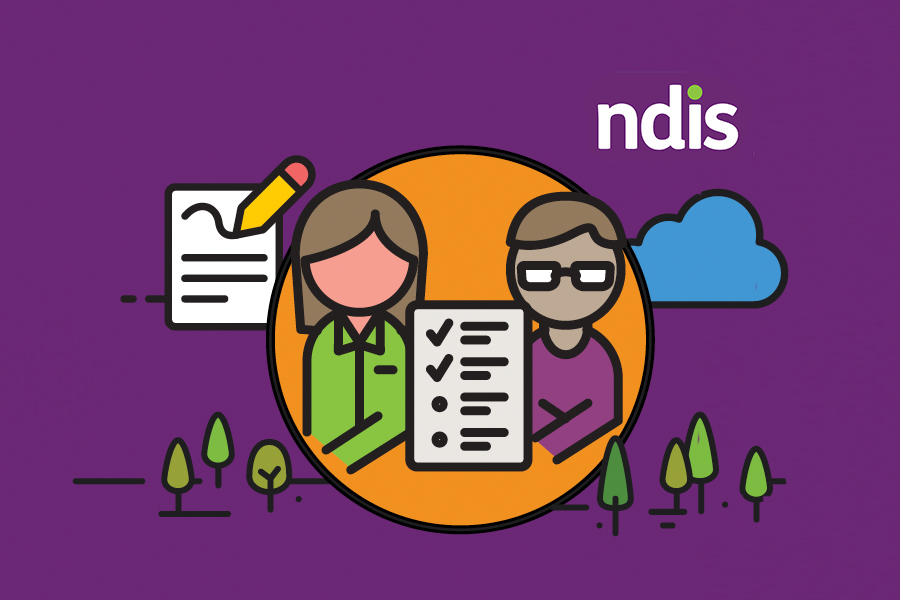
NDIS funding empowers you to spend more quality time with your loved ones, gain independence, master new skills, secure employment or volunteer opportunities, and achieve your personal goals through funded supports.
This funding links you to essential local services, such as medical professionals, community and sports groups, capacity building supports, libraries, and schools, while offering information about the support accessible from state and territory governments.
The goals of the NDIS include:
- Promoting independence, capacity building, and participation in social and economic activities for people with disability by funding supports.
- Providing essential and timely supports.
- Ensuring individuals with disability can make choices, direct their own support plans, and get their supports funded.
- Aiming for a consistent national approach to support access and funding.
- Encouraging high-quality, innovative support options.
The funding for services is based on an insurance model that serve as projections and planning of the core services for people with disabilities.
If you are eligible for NDIS funding, you might be wondering which supports are covered and which aren’t.
Here’s what you need to know:
To get NDIS funding, first determine your eligibility. This requires that you be between the ages of 9 and 65, hold Australian citizenship, permanent residency, or a Protected Special Category Visa, and live in Australia. Additionally, applicants must have a permanent handicap that need specific supports for daily living activities.
Once authorized, you’ll collaborate with the NDIA to develop your customized goals, which may vary depending on your unique circumstances and independence aspirations. Goals may include growing more self-sufficient in personal care, learning to drive for improved mobility, or planning to live independently. Establishing these goals is critical to the construction of your NDIS plan.
What does the NDIS fund?
The funds allocated by the NDIS are intended to enable participants to access a wide range of services and supports tailored to their specific needs and goals.
They funds things like assistive devices, home modifications, therapy services, transportation assistance, employment support, and social and recreational activities, all aimed at enhancing the quality of life and promoting independence for participants.
For the NDIS to pay for supports or services, they must meet certain rules to be considered ‘Reasonable and Necessary’:
- Supports need to be directly related to your disability.
- They shouldn’t pay for everyday things like your groceries, rent or bills.
- Supports should be good value for the money, meaning it’s worth it for what it does and isn’t more expensive than other options that could help you just as well.
- They have to be the same or similar supports that are known to work well for people with similar needs.
When considering what NDIS supports are right for you, the NDIS also looks at the help you naturally get from the people around you (informal supports) and any other official support you might have, like health or education services.
The aim is to:
- Help you work toward achieving your goals.
- Help you in becoming more independent or maintain your independence.
- Get you more involved in your community and at work.
- Build your social skills for improved relationships and more active community participation.
Examples of things the NDIS funds:
- Core Supports: These services are designed to help individuals take up their daily activities such as grooming, cooking, and involvement in the communities. Core Support services can also include financing for transportation and communication aids or other utility issues.
- Assistive Technology: Under NDIS policy, financial contribution is available to purchase assistive equipment and technology to enhance mobility, communication, as well as self-reliance. It can be through providing wheelchairs, communication gadgets, hearing aids, and modifications of vehicles or homes just for a mention.
- Home Modifications: The community will use its funds to provide for example installation of handrails and modification of the home to make the participant’s environment better. These can be very simple such as ramps, grab bars, toilet modifications and/or, full racks and installation, which accommodates the participating individual. All should is be exactly according to their needs.
- Therapeutic Supports: The NDIS finances a collection of therapeutic interventions, which are aimed at participants’ assisting to cope with them and to boost their quality of life. These can include offering psychological support, behaviors interference, counseling and the other therapies.
- Employment Supports: The NDIS funds Australians to obtain in or keep in work. This may go as academic counseling or on-the-job coaching, skills training, customized work modifications, and assistance in functioning as an employee or self-employment.
What doesn’t the NDIS fund?
NDIS funding doesn’t cover certain things like:
Anything that may endanger you or others.
Services or commodities that are unrelated to your impairment.
Something that provides the same assistance as another support that the NDIS already covers in your plan.
Rent, groceries, and water bills are examples of day-to-day living expenses.
Income replacement.
